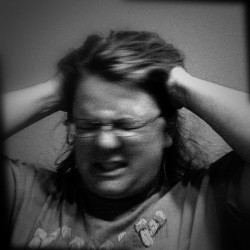Understanding the Types of Brief Psychotic Disorder and their Symptoms
Compared to other personality disorders, brief psychotic disorder is fairly uncommon, with women experiencing this condition more often than men. As the name implies, brief psychotic disorders come and go within a short timeframe, though the symptoms that arise can quickly overwhelm those affected.
Overall, three types of brief psychotic disorder have been identified:
- Stress-induced
- Non-stress-induced
- Postpartum-induced
In effect, the types of circumstances preceding a psychotic break often point to which type of brief psychotic disorder is at work.
Regardless of the type of disorder involved, this condition brings on distressing symptoms that can place the person and those around him or her in serious danger, so immediate treatment should be sought.
Brief Psychotic Disorder

Psychotic disorders can make people act in strange and bizarre ways.
The time period in which symptoms appear most distinguish brief psychotic disorder from a full-blown psychosis. The duration of a brief episode runs for at least a day, and no longer than one month.
Otherwise, someone affected by this condition may well appear psychotic for the long-term.
At least one of the symptoms associated with psychosis must be present in order for a diagnosis of brief psychotic episode to apply. Symptoms to watch out for include:
- Strange movements
- No movement at all, as in catatonic
- Hallucinations
- Strange speech patterns
- Incoherent speech
- Bizarre behaviors
- Inappropriate behaviors
According to the U. S. National Library of Medicine, someone affected by bipolar-type disorders or under the influence of alcohol or drugs does not meet the criteria for a brief psychotic condition.
While the overall behavior display remains the same regardless off the cause, a brief psychotic episode can arise within any number of life situations.
Stress-Induced Psychosis
With stress-induced brief psychosis disorder, symptoms develop in response to a stressful or traumatic incident. Also known as brief reactive psychosis, this is the most common form of the disorder.
According to the National Institutes of Health, stressful incidents can take any number of forms, some of which include:
- An accident
- Being assaulted
- Fighting in combat
- A divorce
- A hostage situation
- A natural disaster
Those affected usually return to normal when the stressor subsides, support becomes available or by developing the coping skills needed to handle the situation.
Non-Stress-Induced Psychosis
With non-stress-induced psychosis, no apparent cause or trigger can be linked to the symptoms that develop. In some cases, people suffering from other psychological conditions may develop brief psychotic disorder as a defense mechanism when under pressure or during stressful periods.
As someone suffering from a psychological disorder, such as depression or generalized anxiety already struggles at coping with everyday life, an increase in pressure or responsibility can make him or her more susceptible to developing a brief psychotic condition.
Postpartum-Induced Psychosis
Postpartum-induced conditions affect women, usually within four weeks after giving birth. For some women, the drastic hormonal changes that take place during and after childbirth can trigger a brief psychotic condition. Also known as postpartum psychosis, symptom displays can be life threatening for the mother as well as the child in some cases.
With all types of brief psychotic disorder, symptoms come on quickly, seemingly out of nowhere. When symptoms persist for longer than a day’s time, the person affected requires immediate medical care.





